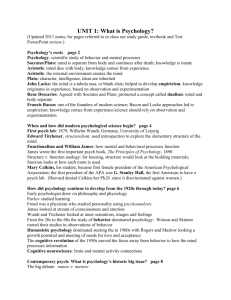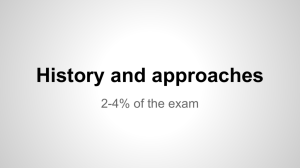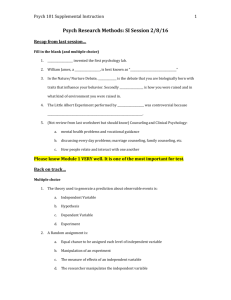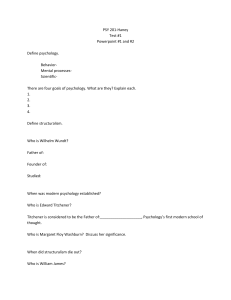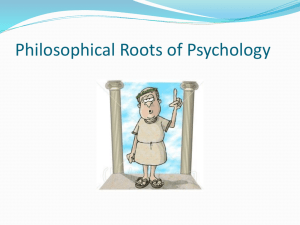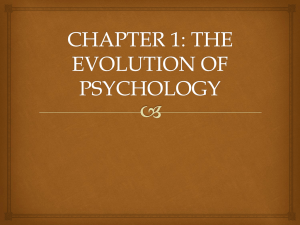Timeline of psych history
advertisement
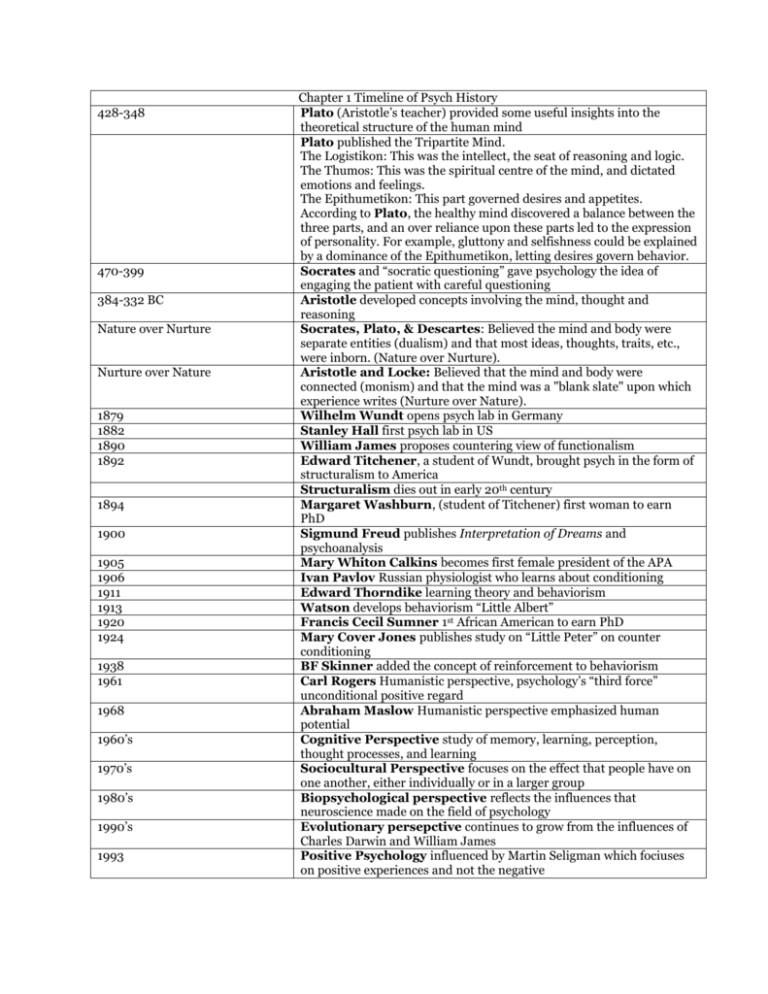
428-348 470-399 384-332 BC Nature over Nurture Nurture over Nature 1879 1882 1890 1892 1894 1900 1905 1906 1911 1913 1920 1924 1938 1961 1968 1960’s 1970’s 1980’s 1990’s 1993 Chapter 1 Timeline of Psych History Plato (Aristotle’s teacher) provided some useful insights into the theoretical structure of the human mind Plato published the Tripartite Mind. The Logistikon: This was the intellect, the seat of reasoning and logic. The Thumos: This was the spiritual centre of the mind, and dictated emotions and feelings. The Epithumetikon: This part governed desires and appetites. According to Plato, the healthy mind discovered a balance between the three parts, and an over reliance upon these parts led to the expression of personality. For example, gluttony and selfishness could be explained by a dominance of the Epithumetikon, letting desires govern behavior. Socrates and “socratic questioning” gave psychology the idea of engaging the patient with careful questioning Aristotle developed concepts involving the mind, thought and reasoning Socrates, Plato, & Descartes: Believed the mind and body were separate entities (dualism) and that most ideas, thoughts, traits, etc., were inborn. (Nature over Nurture). Aristotle and Locke: Believed that the mind and body were connected (monism) and that the mind was a "blank slate" upon which experience writes (Nurture over Nature). Wilhelm Wundt opens psych lab in Germany Stanley Hall first psych lab in US William James proposes countering view of functionalism Edward Titchener, a student of Wundt, brought psych in the form of structuralism to America Structuralism dies out in early 20th century Margaret Washburn, (student of Titchener) first woman to earn PhD Sigmund Freud publishes Interpretation of Dreams and psychoanalysis Mary Whiton Calkins becomes first female president of the APA Ivan Pavlov Russian physiologist who learns about conditioning Edward Thorndike learning theory and behaviorism Watson develops behaviorism “Little Albert” Francis Cecil Sumner 1st African American to earn PhD Mary Cover Jones publishes study on “Little Peter” on counter conditioning BF Skinner added the concept of reinforcement to behaviorism Carl Rogers Humanistic perspective, psychology’s “third force” unconditional positive regard Abraham Maslow Humanistic perspective emphasized human potential Cognitive Perspective study of memory, learning, perception, thought processes, and learning Sociocultural Perspective focuses on the effect that people have on one another, either individually or in a larger group Biopsychological perspective reflects the influences that neuroscience made on the field of psychology Evolutionary persepctive continues to grow from the influences of Charles Darwin and William James Positive Psychology influenced by Martin Seligman which fociuses on positive experiences and not the negative
